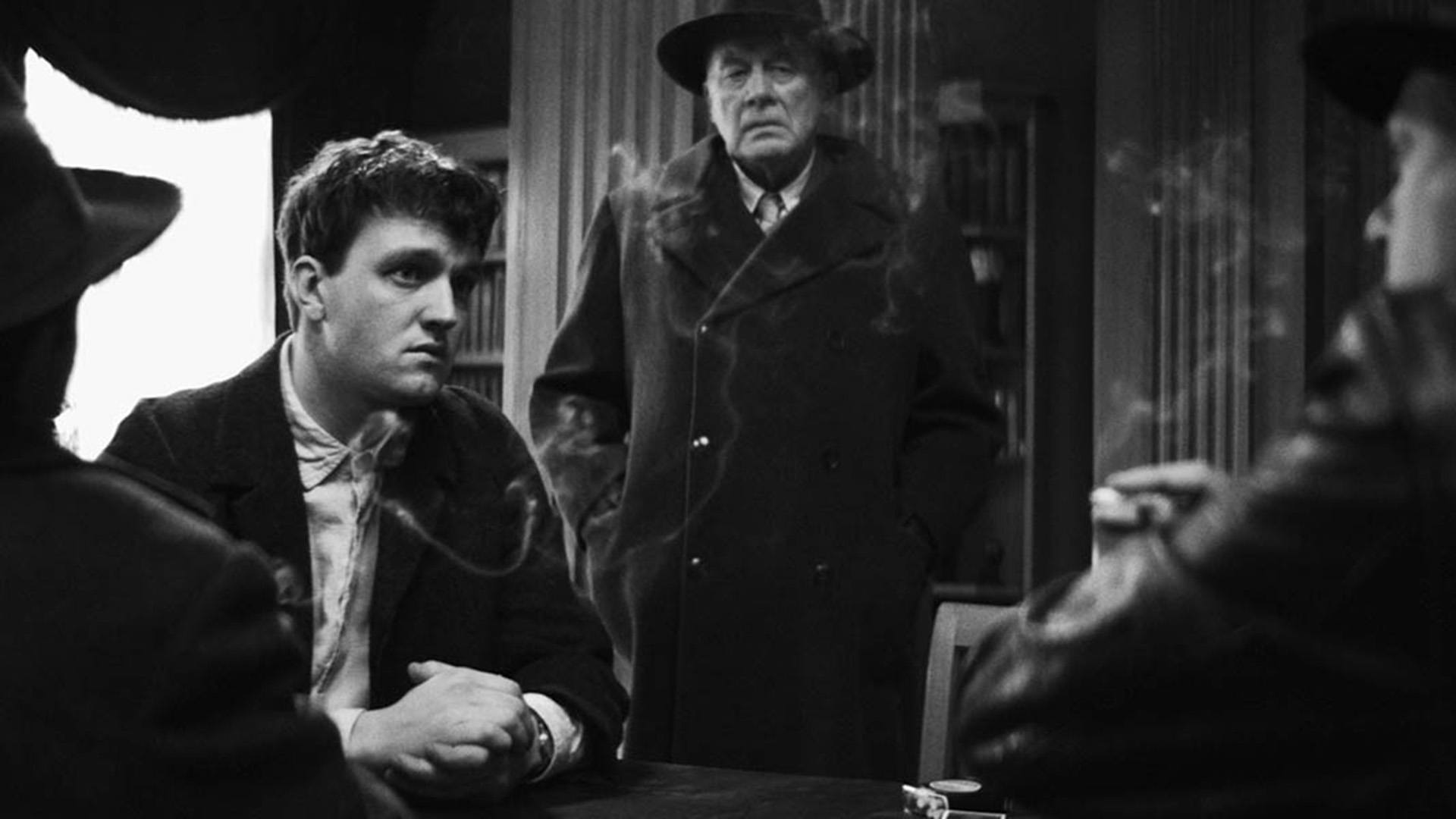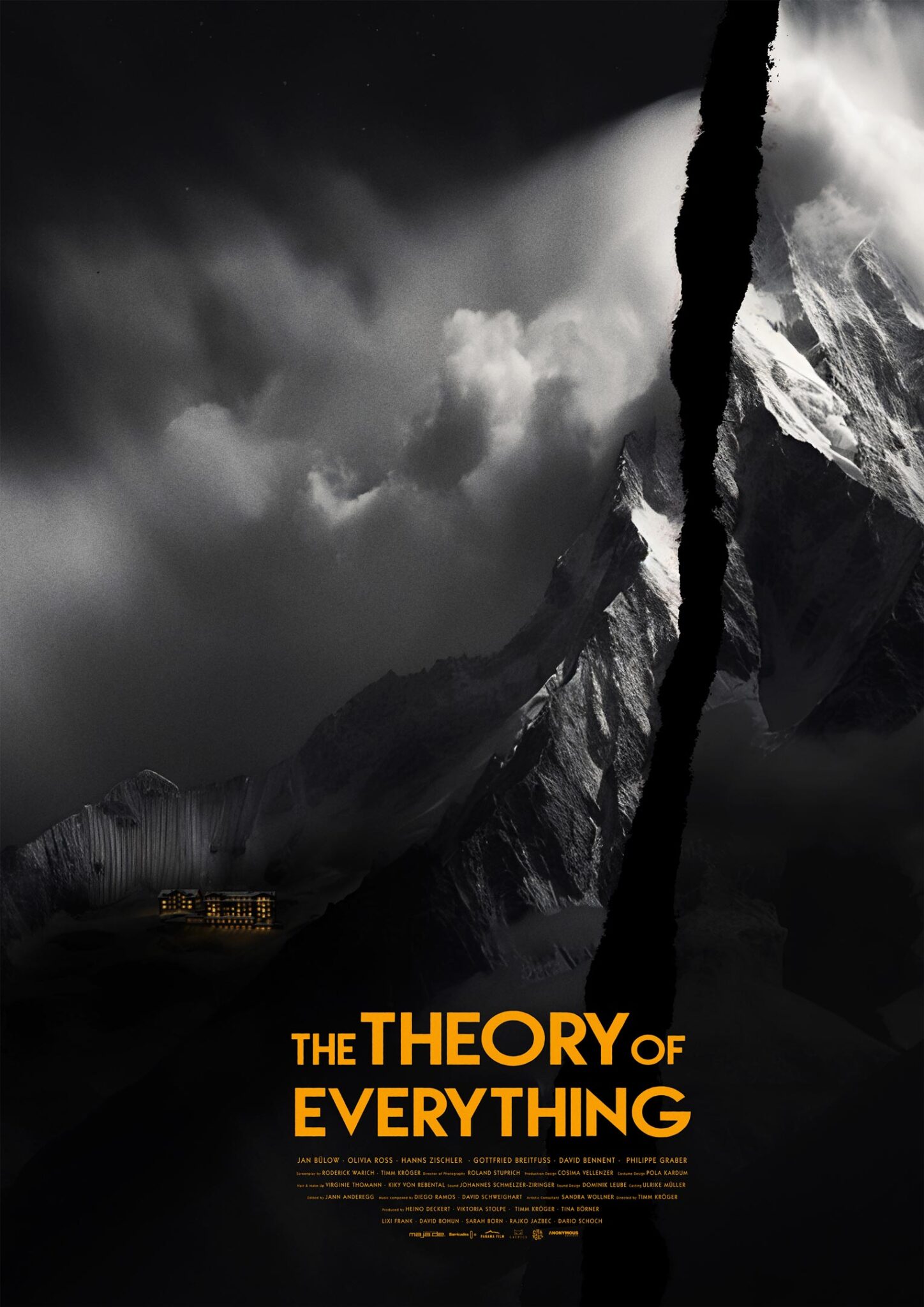Timm Kröger’s The Universal Theory (Die Theorie von Allem) opens with a brief segment of a 1974 TV talk show on which Johannes Leinert, an author of a new book with the same title as this film, is the guest. While the host talks of the book as science fiction, the author is adamant that it is not fiction at all. This story, he says, really happened. The host seems to think this quite strange since the story is so unbelievable. The author soon becomes agitated and storms off looking like a madman. The shape of reality and fiction twist around through the rest of the film.
After that brief prologue, the film moves back twelve years and shifts to stark black and white cinematography. Leinert is a struggling doctoral student in physics. He is to accompany his mentor, Dr. Strathen, to a physics conference in the Swiss Alps. On the train ride, they are joined by Dr. Blumberg, who Strathen seems to hold in disdain. The conference loses its keynote speaker and there is little to do except enjoy the scenery.

While taking refuge from a storm in a rural church, Leinert encounters a woman, Karin, who seems to know him. Later he sees her playing jazz piano at the hotel. They strike up a friendship. Karin seems to know a a great deal about Leinert’s past. Soon very strange things begin to happen. There are bizarre cloud formations. People die gruesomely, but later they aren’t dead. There are secret tunnels under the mountains. As Leinert gets deeper into the mystery, he just becomes more and more confused about what is happening.
The Universal Theory is a mixture of sci-fi and noir. It has the dark moodiness of an Alfred Hitchcock film, the otherworldliness of a David Lynch film, and the reality-bending worldview of a Philip K. Dick novel. It is a story about searching for the truth, but what if the truth is malleable? The film creates a world in which the multiverse breaks into Leinert’s world. When parallel universes begin to mingle, is the reality of this world changed?
I love that quantum physics allows writers to create interesting conundrums—in part, because so few of us (myself included) really understand it. It brings a new realm of metaphysical possibilities to us—including ideas about the nature of truth. This film plays with those possibilities, but may try to twist around on itself once or twice too often, leaving the viewer a bit too disoriented to ponder what is true and what is not.

Photos courtesy of Panama Films.





